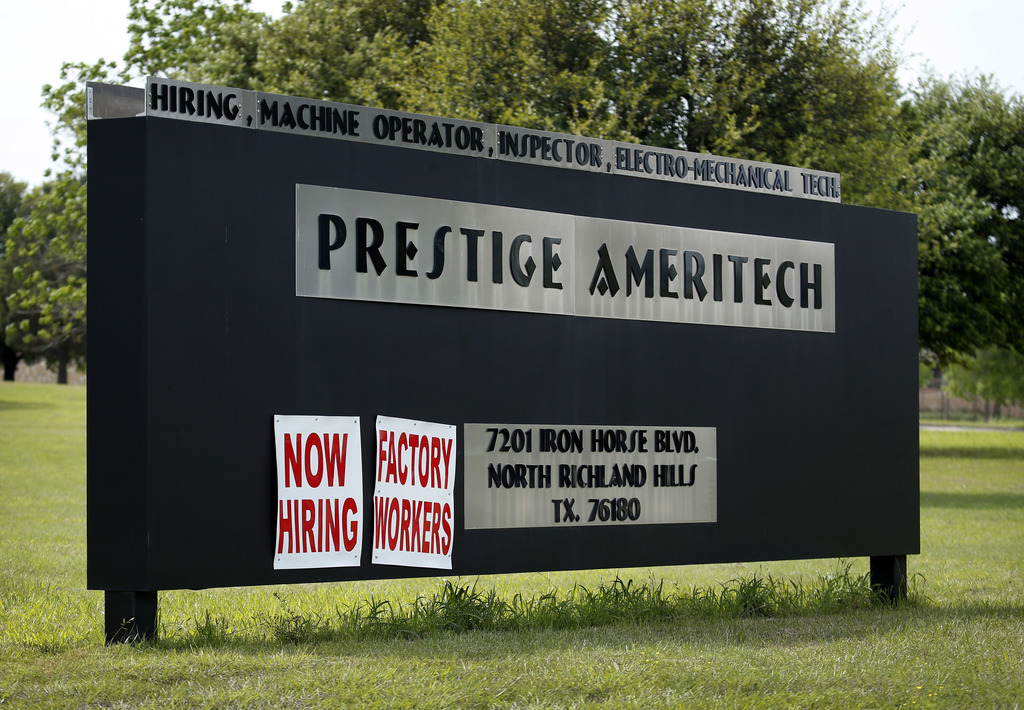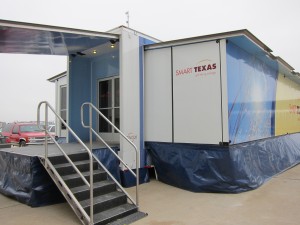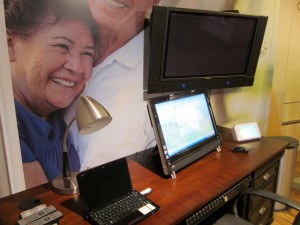
This story about America’s number one medical mask maker — Prestige Ameritech — appeared in the April 3, 2020 Dave Lieber Watchdog column in The Dallas Morning News. Five days later Texas Gov. Greg Abbott agreed to send the Texas National Guard to work an added shift and produce two million masks a week.
When the history of the coronavirus epoch is written, The Watchdog hopes historians don’t neglect to mention Prestige Ameritech and its owner, Mike Bowen. The North Richland Hills company is America’s No. 1 maker of hospital surgical masks.
During this crisis, you’d think the company would be pushing forward on all cylinders, working 24/7 to manufacture the one commodity that Americans and the rest of the world want so badly.
You’d be wrong.
The company is only operating weekday shifts. You drive by nights and weekends and the employee parking lot is empty.
“People are curious why there aren’t any cars in the parking lot,” North Richland Hills Mayor Oscar Trevino told me.
And why is that, Mr. Mayor?
“The system got him,” the mayor said about Bowen, who is executive vice president of the company. “And he’s unhappy about it.”
The story of Bowen’s unhappiness is a cautionary tale about what can happen if Americans searching for cheaper prices send entire industries offshore to countries like Mexico and China.
Everything Bowen has warned about has come true. He warned that allowing another country to serve as our main supplier of personal protection equipment has the potential to become a national security nightmare.
Bowen declined to talk to The Watchdog for this story. He’s busy.
“There is 200 times more demand than there is supply,” he told former presidential adviser Steve Bannon on Bannon’s podcast. “My phone is ringing every two minutes. Every one minute I am getting an email.”
An examination of his warnings going back more than a dozen years tells the story.
The common theme is that during an outbreak like this, everybody wants to be his customer. But as soon as an outbreak subsides, his customers dump him and run back to China. The reason? His masks may cost a dime each, but a made-in-China mask might go for two cents.
“Last time he geared up and went three shifts a day working his tail off,” the mayor recalled. “As soon as the issue died, he didn’t have any sales. He had to pay unemployment for all these people, and he had to gear down.”
As Bowen explained to Bannon, “I’ve been preaching this American-made story since 2007. Nobody listened. The whole mass market was only interested in price. I’ve been everywhere trying to get people to listen. I’ve talked to congressmen. I’ve talked to generals. I’ve written the president. I wrote President Obama five or six letters, and he sent me a presidential proclamation suitable for framing.”
Bowen wants a guaranteed contract, not a proclamation. It’s tough to win a bid to supply U.S. hospitals through their group purchase agreements that seek the cheapest price when your competitor pays low wages, ignores environmental concerns and is subsidized by a Communist government.
Last month, he got another proclamation but no contract to go with it. U.S. Sen. Marco Rubio, R-Florida, named Prestige Ameritech the “Senate Small Business of the Week.” The citation notes that the company “has ramped up their daily production to 600,000 masks.”
The company could do so much more.
The best intentions
The company is in a building originally used by Kimberly-Clark to make medical masks. But that company moved its operations to Mexico. When Prestige Ameritech opened in 2005, it was touted as a great day for the made-in-America movement.
By 2009, the company had grown strong enough to meet the demand caused by the H1N1 swine flu outbreak. Hospitals promised to stick with him afterward, but they broke their promise. The allure of cheaper Chinese masks was too great for hospital purchasing groups to ignore.
In 2010, the company celebrated a grand “reopening” when it renamed its factory the Global Pandemic Preparedness and Response Center. The event was attended by then-Gov. Rick Perry, who said, “It’s good news for America as America becomes competitive back in this arena again.”
But the news wasn’t so good. The next year, Bowen and company president Dan Reese had to lay off 150 workers. Bowen told Wired magazine, “150 people that saved a lot of hospitals from closing their doors were rewarded by losing their jobs. And that’s not going to happen again.”
The company nearly went bankrupt. In 2012 the company took out a million-dollar loan.
Mayor Trevino recalls escorting Bowen around the Texas Capitol in Austin as Bowen made his case with state lawmakers for more government support.
“He was begging them to understand that we shouldn’t have all our masks made in China. He wanted a federal government contract that would keep him in steady business,” the mayor said, adding that Bowen wanted to help build a future stockpile for a pandemic that Bowen predicted would happen.
Trevino recalls Bowen saying, “If y’all don’t care about me in good times when everybody’s OK, how am I going to be there when you need me?”
The city wrote letters on his behalf to federal lawmakers, Trevino said.
“Everything he was saying fell on deaf ears,” the mayor said.
Or as Bowen asked in a 2017 Dallas Morning News interview, “If the government doesn’t even buy American, who will?”
In that same interview, Bowen showed stacks of dismantled office cubicles.
“Every one of those represents somebody who used to have a job,” he said, adding that he nicknamed an empty, unlit corridor in his factory the “hall of death.”
He’s tired of being “the backup guy,” he said. “Create American jobs. Buy American. … It’s hot air.”
Ramping up
That’s why if you drive by America’s No. 1 mask maker on a night or weekend, the parking lot is ghostly. But the lot isn’t completely empty. There’s a North Richland Hills police car parked outside near a police observation tower. The mayor said the business has received threats.
Bowen told CBSDFW.com that he could only make about 1 million masks a day if he ran his machines 24/7. He said that would have little impact on global demand.
He told Bannon he is ramping up, but it takes weeks to build new machines and train employees. His company’s street sign announces it is hiring.
The company is not selling to the general public or to non-American buyers. Now, it’s only selling to U.S. hospitals. But Bowen asks hospitals to sign contracts. Who can blame him?
Or as the mayor puts it, “He’ll gear back up, and he’ll produce, and they’ll probably do it to him again.”
READ MORE STORIES BY THE WATCHDOG.
Photo by Tom Fox, Dallas Morning News











